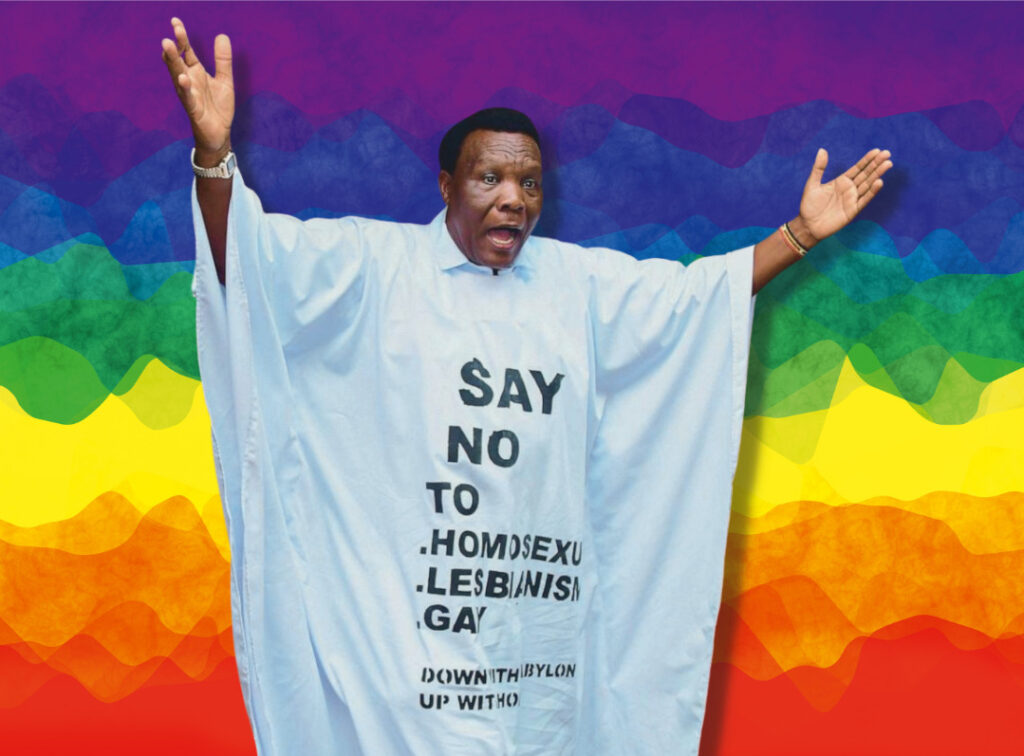LGBTQ rights have undoubtedly progressed within the last decade. As a young college student at a university located in a liberal metropolitan city and a non-denominational Western country, it is easy to be misled. It can be easy to forget that in countless places around the world, LGBTQ rights are still under attack through either extreme punishments, like death and long term imprisonment, or other limitations on liberties, such as educational presence and reproductive rights.
While homosexuality has long been illegal in places around the world, what is notably worrisome is the recent increased divisiveness around this topic, seen through legislation in countries globally. As some places around the world pass legislation that increases freedoms for LGBTQ people, other countries, almost in retaliation, tighten their laws, limiting the community’s freedoms. It is a phenomenon in which progress seems to be driving polarization — as LGBTQ people become more visible and accepted at the international level, those with more “traditional” and discriminatory views are more likely to react with strict anti-LGBTQ laws.
One example of stricter legislation is Uganda’s recent anti-LGBTQ bill. While homosexuality was already illegal in Uganda, the new proposal targets the community with amplified intensity. This proposal criminalizes identifying as a member of the LGBTQ community, even imposing the death penalty in some extreme cases.
The new Ugandan legislation prohibits a wide range of activities, targeting anyone with any ties to homosexuality or the LGBTQ community, including individuals, family members, organizations, media outlets and property owners. The bill was proposed with the stated intention of protecting Ugandan culture and traditional family values from the promotion of “sexual promiscuity.” However, critics argue the government should focus more on preventing abuse, both hetero and homosexual, rather than implementing the kind of regulations imposed in the bill.
The lawmakers who proposed the ruling have been criticized for targeting the LGBTQ community simply for political attention and to cover up shortcomings in their administrations. Advocates in the region say passing the bill would most likely lead to mass arrests of LGBTQ people, further violence and discrimination and possible blackmail threats to turn others in as LGBTQ.
This is an example of a country, regardless of where it previously stood on homosexuality, taking steps to further criminalize and inhibit the LGBTQ commmunity in the name of traditionalism. It is the use of this issue as a political strategy to cater to those who feel safer in what they know, at the expense of the freedom of others.
Another example of anti-LGBTQ legislation is the recent laws targeting the education of LGBTQ topics in schools. For instance, in 2021, Hungary passed a Child’s Protection Law that contains a clause prohibiting depictions of homosexuality and gender reassignment in media content or educational material designed for audiences under 18 years of age.
There has been great backlash surrounding this ruling, though Hungarian officials have argued the government has the right to protect their children how they see fit. The criticism over the legislation has presented the banning of these topics as an infringement on the rights of the LGBTQ community, and the law has also come under fire for seemingly comparing homosexuality to pedophilia, as the stated purpose of the bill was to strengthen the protection of children against sex offenders.
As a result, 15 EU countries have joined a legal case against this legislation, and will act as third parties to the lawsuit already filed by the European Commission. Hungary has refused to yield and remains steadfast in its decision. The distribution of countries who joined the case against Hungary reflects the historic gap between eastern and western European countries when it comes to the protection of LGBTQ rights, as the majority of the countries on the suit are western European.
Another similar domestic example is the case of Florida’s “Don’t Say Gay” law, or the Parental Rights in Education Act, which was signed into law by Gov. Ron DeSantis in 2022. Its stated purpose is to prohibit classroom discussion of sexual orientation or gender identity from kindergarten to the third grade, or in a manner that is not age-appropriate. The educators themselves would be the ones to face the consequences of discussions, not schools or districts. Faculty could even be punished for not reporting their peers.
However, the law doesn’t specify what exactly qualifies as classroom discussion or what is considered age-appropriate. The vague wording, which is likely intentional, leaves a lot up to interpretation and raises many questions, such as: is it just the instruction of these issues that is banned or any discussion at all? Will LGBTQ educators or students with LGBTQ parents be banned from discussing their families?
Again, these two examples from Hungary and Florida show steps taken to limit LGBTQ rights and their presence in society in the name of family values and tradition. Like the Ugandan law, the stated purpose (to protect children or people from inappropriate material or abuse) is a vessel in which to place homophobic legislation and discriminatory measures. If the stated reasons were true, there are much more direct and effective ways to protect people.
As LGBTQ people and communities become increasingly visible around the world, in media and on social media, so do negative sentiments from people who want to make them invisible again. Progress drives polarization as people become more strongly rooted in traditional and often hateful mindsets, as change uproots what they once knew. As the law in Uganda passes, so does the recent ruling in Spain that validates trangender teenage rights and makes IVF treatment more accessible. As Hungary poses limits on LGBTQ discussion, Finland abolishes harmful requirements for transgender people before they are able to have their gender recognized.
Another component that operates in conjunction with reciprocal polarization is the increased presence of nationalist or far right movements globally. As populations are unsettled by social evolution, far right movements give people a group of like-minded individuals who cling to traditionality.
The growth of these groups has both been a result of social movements and simultaneously helped to spur them on. The LGBTQ community and topic is one targeted by politicians as a tactic, as members of political parties are often impassioned and feel strongly about it.
This is seen in the Ugandan ruling, proposed in order to harness the public’s personal emotions to generate good will toward failing politicians. It’s seen with the Republican party in the United States, with the “Don’t Say Gay” law in Florida and other proposed legislation across the country. In a cyclical motion, then, leaders spur and affirm their supporters, further dividing global sentiments. Such negative public discourse by politicians on LGBTQ communities impacts social attitudes.
So, while it is encouraging to see positive progress occur so rapidly over the last decade, it is also important to remain aware that rights for LGBTQ communities around the world are still in grave jeopardy. There is much work to be done not only to bring up already repressed groups of the community, but to also prevent the further regression of rights around the world. It is unfortunately still an uphill battle to establish basic human rights for people who just want to love one another in peace.







